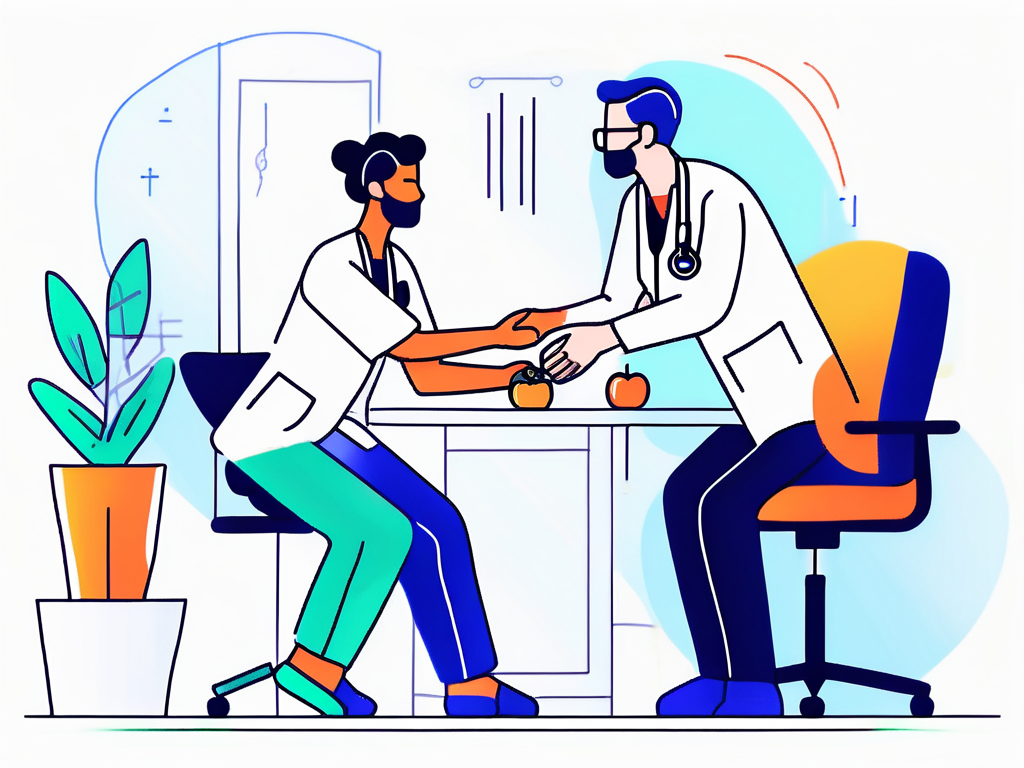What to Avoid When Taking Low Dose Naltrexone
Low Dose Naltrexone (LDN) is a medication that has gained popularity in recent years for its potential therapeutic benefits. However, as with any medication, there are certain things to be aware of and avoid when taking LDN. In this article, we will explore these key considerations to ensure that you have a safe and effective experience with LDN.
Understanding Low Dose Naltrexone
Before delving into what to avoid, it is essential to have a clear understanding of what LDN is and its purpose. LDN is a low-dose version of the medication Naltrexone, which is primarily used to treat addiction to opioids.
Low Dose Naltrexone, often abbreviated as LDN, has gained attention in recent years for its potential therapeutic benefits in various medical conditions. While Naltrexone in higher doses is commonly known for its role in managing addiction, LDN is utilized for a different purpose, focusing on immune modulation and anti-inflammatory effects.
The Purpose of Low Dose Naltrexone
Unlike its higher-dose counterpart, LDN is used for its potential therapeutic effects beyond addiction treatment. It is believed to modulate the immune system, reduce inflammation, and promote healing in various autoimmune conditions.
Research suggests that LDN may help in conditions such as multiple sclerosis, fibromyalgia, Crohn’s disease, and chronic pain syndromes. By targeting the body’s endorphin system, LDN aims to restore balance and improve overall well-being in individuals with these chronic illnesses.

How Low Dose Naltrexone Works
LDN works by blocking the body’s opioid receptors for a short period, which then stimulates the release of endorphins and increases endorphin receptor sensitivity. This process is thought to help balance the immune system and alleviate symptoms associated with autoimmune disorders.
Furthermore, the upregulation of endorphins through LDN may also play a role in pain management and mood regulation, offering a multifaceted approach to improving quality of life for individuals dealing with chronic health challenges.
Potential Risks and Side Effects
While LDN may offer benefits, it is crucial to be aware of potential risks and side effects. Understanding these will help you make informed decisions about your health.
Low Dose Naltrexone (LDN) is a medication that has gained popularity for its potential therapeutic effects in various conditions. It works by modulating the immune system and reducing inflammation, which can be beneficial for individuals with autoimmune diseases, chronic pain, and certain cancers.
Common Side Effects of Low Dose Naltrexone
Although LDN is generally well-tolerated, some users may experience common side effects such as headaches, vivid dreams, and mild gastrointestinal discomfort. These side effects are typically temporary and subside over time.
It is important to note that individual responses to LDN can vary, and some users may not experience any side effects at all. Monitoring your symptoms and discussing them with your healthcare provider can help manage any discomfort that may arise.
Serious Risks Associated with Low Dose Naltrexone
While serious risks are rare, it is crucial to be aware of potential interactions and contraindications. LDN may interact with certain medications, particularly those that utilize the same liver enzymes for metabolism. Additionally, LDN is not recommended for individuals with acute hepatitis, liver failure, or active drug or alcohol dependence.
Before starting LDN, it is important to have a thorough discussion with your healthcare provider about your medical history, current medications, and any concerns you may have. This will help ensure that LDN is a safe and appropriate treatment option for you, minimizing the risk of adverse effects and maximizing the potential benefits of this medication.
Interactions to Be Aware Of
LDN, like any medication, can potentially interact with other substances, including both medications and certain foods. Being aware of these interactions will help you avoid any potential complications.
It is crucial to understand the various interactions that can occur when taking Low Dose Naltrexone (LDN). These interactions can impact the effectiveness and safety of the medication, so it is essential to be informed.
Drug Interactions with Low Dose Naltrexone
If you are taking other medications, it is essential to consult with your healthcare provider to ensure they do not interact negatively with LDN. Certain medications, such as opioid painkillers or drugs that modulate the immune system, may have interactions that could affect the efficacy or safety of LDN. Low Dose Naltrexone may cause certain medications for pain, like morphine or hydrocodone to not be as helpful in treating pain.
Additionally, it is important to note that certain over-the-counter medications, supplements, and herbal remedies can also interact with LDN. Always inform your healthcare provider about all the medications and supplements you are taking to prevent any potential interactions.
Dietary Considerations When Taking Low Dose Naltrexone
While LDN does not have specific dietary restrictions, it is recommended to avoid consuming alcohol when taking LDN. Alcohol can have potential interactions and may increase the risk of liver-related side effects.
Furthermore, maintaining a healthy and balanced diet can support the effectiveness of LDN. Eating a variety of nutrient-rich foods, staying hydrated, and avoiding excessive amounts of sugar and processed foods can help optimize the benefits of LDN treatment.
Precautions Before Starting Low Dose Naltrexone
Prior to starting LDN, it is important to discuss your medical history with your healthcare provider to determine if LDN is appropriate for you. Certain medical conditions and life situations may require additional precautions.
Low Dose Naltrexone (LDN) is a medication that has garnered attention for its potential benefits in various conditions, such as chronic pain, autoimmune diseases, and mental health disorders. However, before embarking on this treatment journey, it is crucial to be well-informed about the necessary precautions and considerations.
Medical Conditions and Low Dose Naltrexone
If you have a history of liver disease, kidney disease, or any other significant medical condition, it is crucial to inform your healthcare provider. They can assess whether LDN is suitable for you and may need to adjust the dosage or closely monitor your progress.
Individuals with autoimmune conditions such as multiple sclerosis or rheumatoid arthritis should also exercise caution when considering LDN, as it may interact with their existing treatment regimens. Consulting with a healthcare provider who is knowledgeable about both conventional and alternative therapies is essential to ensure comprehensive care.
Pregnancy, Breastfeeding, and Low Dose Naltrexone
It is not recommended to take LDN during pregnancy or while breastfeeding. Limited research is available on LDN’s safety during these periods, and it is crucial to prioritize the health and well-being of both the mother and the child.
For individuals planning to conceive or undergoing fertility treatments, discussing the potential impact of LDN on reproductive health is paramount. Research on LDN’s effects on fertility and pregnancy outcomes is still evolving, highlighting the need for personalized medical advice in such situations.
Proper Use of Low Dose Naltrexone
To ensure the maximum benefit and minimize any potential risks, it is important to follow proper usage guidelines when taking LDN.

Low Dose Naltrexone (LDN) is a medication that has gained attention for its potential off-label uses in various conditions such as chronic pain, autoimmune diseases, and certain types of cancer. While the exact mechanism of action is not fully understood, LDN is believed to work by modulating the immune system and reducing inflammation. This unique approach has led to increased interest among patients and healthcare providers alike.
Dosage Guidelines for Low Dose Naltrexone
The optimal dosage of LDN can vary depending on the individual and their specific condition. It is typically started at a low dose, such as 1.5 to 4.5 milligrams, and gradually increased as tolerated. Your healthcare provider will determine and monitor the appropriate dosage for you.
It is important to note that the effects of LDN may not be immediate and can take several weeks to months to become noticeable. Patience and consistency in following the prescribed dosage are key to potentially experiencing the benefits of this treatment.
What to Do If You Miss a Dose
If you inadvertently miss a dose, it is generally safe to take it as soon as you remember. However, if it is already close to the time for your next scheduled dose, it is advisable to skip the missed dose and continue with your regular dosing schedule. Never double up on a dose to compensate for a missed one.
As with any medication, it is essential to be aware of potential side effects and interactions with other drugs. Common side effects of LDN may include vivid dreams, insomnia, or gastrointestinal upset. It is crucial to report any unusual or severe symptoms to your healthcare provider promptly.
By understanding the purpose, potential risks, and proper usage of LDN, you can optimize your experience and minimize any potential complications. Remember to consult with your healthcare provider for personalized guidance and individualized recommendations. Stay informed, stay safe, and enjoy the potential benefits that LDN may offer.


